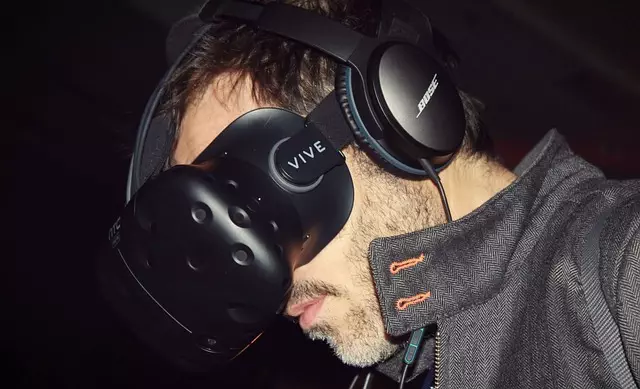Virtual therapy sessions have revolutionized mental healthcare by offering remote therapeutic services through digital platforms, accelerated by the pandemic's need for home counseling. These sessions provide unprecedented convenience and flexibility, eliminating travel requirements and ensuring confidentiality. Through online video conferencing, clients can access professional therapists from anywhere with a stable internet connection, fostering open communication and enhancing treatment outcomes. Virtual therapy is effective for various mental health issues, encouraging individuals to seek help without physical barriers. Despite challenges like privacy concerns, technological advancements ensure secure sessions, replicate therapist-client rapport, and make virtual therapy increasingly popular, promising better access to mental healthcare in the future.
“Teletherapy, or virtual therapy sessions, has emerged as a revolutionary force in mental health care. In today’s digital age, understanding this innovative approach and its growing popularity is paramount. This article explores the transformative power of teletherapy, highlighting its benefits for patients and therapists alike. From face-to-face video calls to secure online platforms, we delve into how these sessions are conducted and the types of mental health issues they cater to. We also discuss challenges and future prospects, offering insights into the ever-evolving landscape of virtual therapy services.”
Understanding Teletherapy and Its Rise in Popularity

Teletherapy, or virtual therapy sessions, has emerged as a game-changer in the mental health landscape. It refers to the delivery of therapeutic services through digital platforms, enabling clients to access counseling and psychotherapy from the comfort of their homes. This innovative approach has gained significant popularity, especially during and post the global pandemic when social distancing measures limited in-person interactions.
The rise in remote communication tools and advancements in technology have made virtual therapy sessions more accessible and appealing to a wider audience. Online platforms offer flexibility, convenience, and confidentiality, addressing many of the barriers traditionally associated with seeking mental health support. As a result, teletherapy has become an increasingly preferred option for both clients and therapists, revolutionizing the way mental health care is delivered and received.
Benefits of Virtual Therapy Sessions

Virtual therapy sessions have gained immense popularity and for good reasons. One of the key benefits is their accessibility; individuals can attend sessions from the comfort of their homes, eliminating the need for travel and making therapy more convenient and less time-consuming. This flexibility is especially advantageous for those with busy schedules or limited mobility.
Furthermore, online therapy provides a safe and confidential space for clients to open up and share their feelings without the constraints of a physical setting. The use of technology allows for secure communication, ensuring personal information remains private. This sense of security can encourage individuals to engage more openly in therapeutic conversations, fostering deeper insights and progress in treatment.
How Teletherapy Sessions Are Conducted

Teletherapy sessions, or virtual therapy sessions, take place online via video conferencing platforms. Clients log in from the comfort of their homes, using a computer, tablet, or smartphone with a stable internet connection. This modern approach to mental health services allows for flexibility and accessibility—clients can access therapy from anywhere, at any time, without navigating physical locations.
During these virtual sessions, therapists maintain a professional environment, creating a safe and confidential space for clients to discuss their concerns. They employ various therapeutic techniques tailored to the client’s needs, engaging in active listening, asking insightful questions, and providing support and guidance. The use of video conferencing technology facilitates face-to-face interaction, fostering genuine connections and enabling effective communication between therapist and client.
Types of Mental Health Issues Suitable for Teletherapy

Teletherapy, or virtual therapy sessions, offers a convenient and accessible approach to mental health care, catering to a wide range of issues. It is particularly beneficial for individuals dealing with anxiety disorders, depression, post-traumatic stress disorder (PTSD), and various forms of phobias. These conditions often involve emotional distress and can be effectively addressed through online platforms. For example, exposure therapy, a common technique in treating anxiety disorders, can be conducted virtually, allowing patients to face their fears in a safe digital environment.
Additionally, teletherapy is suitable for those with mild to moderate substance abuse issues, eating disorders, and relationship problems. The anonymity and convenience of virtual sessions can encourage individuals who might otherwise avoid traditional therapy to seek help. This mode of therapy also accommodates people with physical limitations or those living in remote areas, ensuring they have access to mental health support without the need for travel.
Challenges and Considerations for Effective Teletherapy

The rise of teletherapy has brought about a significant shift in mental health care, especially during times of global health crises where physical distancing is crucial. However, providing effective virtual therapy sessions comes with its own set of challenges. One of the primary considerations is ensuring patient privacy and security in online platforms to build trust and encourage open communication. With sensitive information being exchanged, robust cybersecurity measures are essential to protect against potential data breaches or unauthorized access.
Another challenge lies in replicating the rapport and non-verbal cues that are integral to traditional therapy settings. In virtual sessions, therapists must adapt their approach to account for technical limitations, such as internet connectivity issues or distractions, which can impact the quality of interaction. Effective communication and creative use of technology, including video backgrounds, screen sharing, and interactive tools, can help overcome these obstacles and ensure engaging and successful teletherapy experiences.
Future Prospects of Virtual Therapy Services

The future of mental health care looks promising with virtual therapy sessions rapidly gaining traction and acceptance. As technology continues to advance, it opens up new possibilities for accessibility and convenience in healthcare services. Virtual therapy offers a flexible and comfortable alternative to traditional in-person visits, allowing patients to receive treatment from the comfort of their homes. This shift is particularly beneficial for individuals who face barriers such as geographical locations, physical limitations, or those seeking more private and discreet care.
With advancements in video conferencing technologies, virtual reality, and artificial intelligence, therapists can now provide personalized and effective treatments remotely. These innovations enable therapists to create engaging and immersive experiences, enhancing the therapeutic process. Moreover, data security measures are improving, ensuring patient privacy during virtual therapy sessions. As a result, it is expected that virtual therapy services will become increasingly prevalent, making mental health care more accessible and efficient for a wider population.



